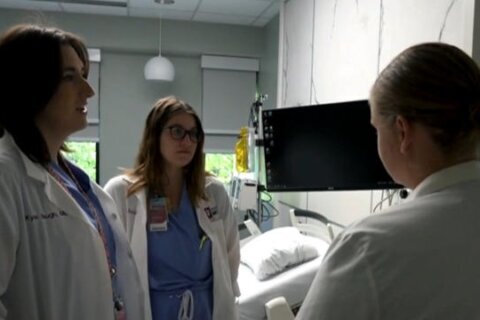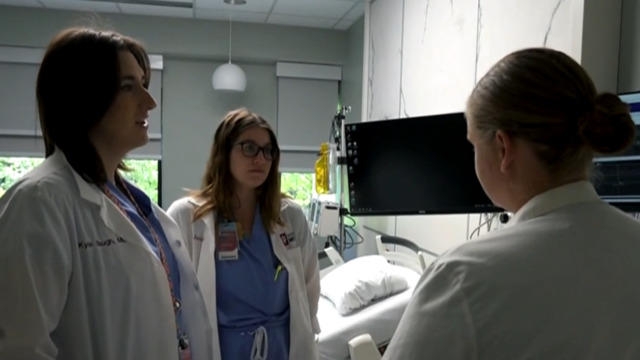
▶ Watch Video: Shortage of OB-GYN doctors expected to get worse
A year after Roe v. Wade was overturned, the U.S. is facing a shortage of OB-GYN doctors. It’s only expected to get worse in the years ahead as medical students make decisions on what and where to practice, in part, based on states’ abortion laws.
Erin Duggey is a third-year medical student in Florida, but unless things change, she said that is not where she wants to be a doctor.
“It’s just not the environment I really want to be in,” the future OB-GYN told CBS News.
Students like Duffey are increasingly steering clear of OB-GYN residencies in states with abortion bans.
Applicants in those states plummeted more than 10% since Roe v. Wade was overturned, according to the Association of American Medical Colleges.
Some are even deciding to avoid the specialty altogether, worried about the ability to practice evidence-based medicine.
“There’s also the big concern of the possibility of being legally prosecuted,” Duffey said.
Dr. Nicole Scott, the director of the OB-GYN residency program at Indiana University School of Medicine, said she has already seen a drop in applications.
“What I’m especially worried about is the retention of those doctors once they’re finished training and their practice after residence,” Scott said.
This can put the health of all women at risk, as OB-GYNs also screen for cancer, perform well-woman exams and prescribe contraception.
Dr. Amelia Huntsberger was practicing in Idaho, where most abortions are banned. Now, she’s leaving for neighboring Oregon after her rural hospital closed its maternity unit, citing both staffing shortages and Idaho’s political climate.
“It’s very clear that Idaho is no longer a safe place to practice medicine,” Huntsberger said.
“If I’m an OB-GYN resident coming out of residency and I’m looking around at different options, why would I look at Idaho and say, ‘Oh, I really want to move there to the state where I could be charged with a felony for providing medical care?'” she said.








